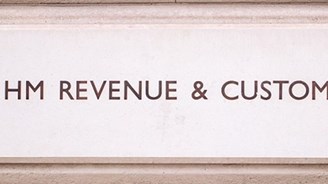IR35 – Agency rules

The whole area of ‘disguised employment’ is in the spotlight at the moment. The Government reformed the off-payroll working rules (known as IR35) for engagements in the public sector in April 2017.
Early indications are that public sector compliance is increasing as a result, and therefore a possible next step would be to extend the reforms to the private sector. Therefore, the Government will carefully consult on how to tackle non-compliance in the private sector, drawing on the experience of the public sector reforms, including through external research already commissioned by the government and due to be published in 2018.
In addition, the Government will publish a discussion paper as part of the response to Matthew Taylor’s review of employment practices in the modern economy, exploring the case and options for longer-term reform to make the employment status tests for both employment rights and tax clearer.
Also, changes were made some years ago which were intended to make the agency legislation work in the way it was always intended, by removing the obligation for the worker to provide their services personally. Instead, the agency legislation applies where the worker:
- personally provides services (which are not excluded services) to another person (‘the client’);
- there is a contract between:
- the client, or a person connected with the client; and
- a person other than the worker, the client or a person connected with the client (‘the agency’);
- under or in consequence of that contract:
- the services are provided; or
- the client or any person connected with the client pays, or otherwise provides consideration, for the services.
This section does not apply if it is shown that the manner in which the worker provides the services, or the worker’s involvement in the provision of the services, is not subject to (or to the right of) supervision, direction or control by any person or remuneration receivable by the worker in consequence of providing the services constitutes employment income.
This change is supported by a statutory returns requirement and an evidential requirement on the intermediary where they consider the worker not to be under control, direction or supervision to be able to provide evidence of this.
So there are two consequences of being an agency, one being a PAYE obligation and the other a returns requirement. One of the major issues for businesses is trying to establish whether they are an agency.
HMRC have issued some examples - one of these examples illustrates that the rules may be wider than you expect.
| Example 4 |
|---|
| Nicky enters into a contract with a local building company Tyne Builders Limited (TBL) to build an extension. This includes the provision of all necessary tradesmen to complete installation of electrics, sanitary-ware, plastering and decoration. Once TBL have the main structure in place, TBL arrange for a plumber and electrician to do the pipework, fit sanitary-ware and providing electrical circuit, wiring and sockets. TBL will:
Both the plumber and the electrician, the workers, are personally providing the services to Nicky, the client. There is a contract between TBL (the agency), and Nicky, (the client). In consequence of the contract between TBL and Nicky the workers personally provide their services to Nicky, so the:
|
If you have any concerns about whether your business is an agency please do get in touch.



